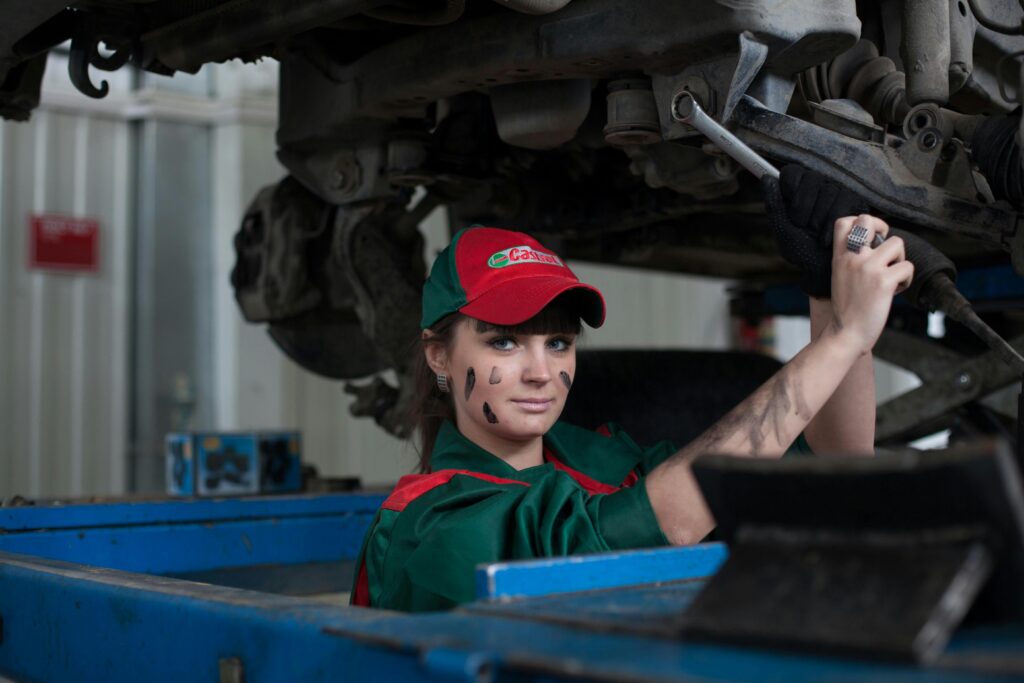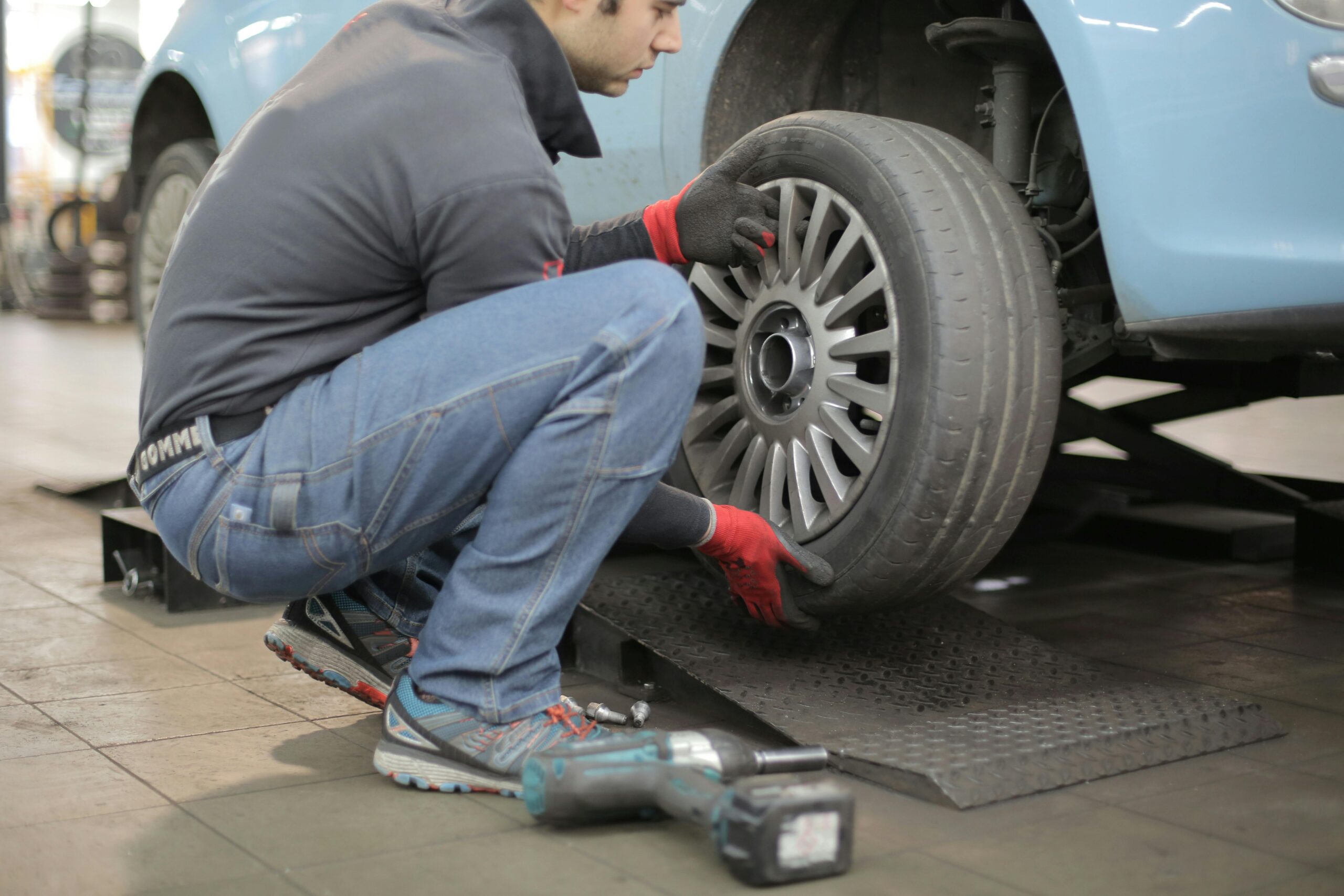Every time you get behind the wheel, you’re placing a lot of trust in your vehicle. Trust that it will start. Trust that it will stop when it needs to. Trust that nothing will go wrong while you’re moving at 60 miles an hour. Most of us take that for granted, until something goes wrong.
Regular maintenance is not about being overly cautious. It’s not only for people who obsess over cars or keep detailed spreadsheets of their oil changes. It’s about making sure the one piece of machinery you depend on to move you and your family from place to place is actually safe to do so. Skipping routine care may seem like no big deal at first, but small issues can grow fast, and safety is where the risk becomes real.
More Than Just a Service Stamp
It’s easy to think of maintenance as something only required to keep your service record up to date. But it plays a far more important role. When your brakes are checked, tyres rotated, or fluids topped up, these aren’t just technical checks for the sake of it. They directly affect how your vehicle performs and, more importantly, how well it protects you.
Neglecting maintenance doesn’t always lead to dramatic failures. Sometimes it’s gradual. A tyre wears unevenly and your grip suffers. Brake pads wear thin and stopping distance increases. You might not notice it straight away, but performance slowly declines, creating more danger each time you drive.
Common Areas That Impact Safety
Here’s where routine care can make the biggest difference. These are the areas that matter most when it comes to road safety:
- Brakes – These should be checked regularly for wear and response. Delayed stopping can be the difference between a near-miss and a collision.
- Tires – Tread depth, pressure, and even wear patterns all play a role in stability, traction, and control, especially in wet or icy conditions.
- Lights – Faulty brake lights or indicators reduce your visibility and increase the risk of being hit by others who can’t predict your movements.
- Suspension and steering – When these start to fail, your ability to steer or keep control during a swerve or emergency becomes compromised.
- Wipers and washer fluid – Poor visibility from smudged windscreens or faulty wipers is a simple fix that too many ignore until it’s too late.
- Engine fluids – Oil, coolant, brake fluid, and transmission fluid all play key roles in keeping systems from overheating or seizing up under stress.
If these things are maintained, your chances of encountering a dangerous fault on the road drop significantly. It’s not about being lucky. It’s about being prepared.
The Cost of Ignoring It
One of the main reasons people delay maintenance is the cost. It feels like an optional expense, especially when the car seems to be running fine. But that short-term saving can turn into a much bigger repair down the line. Worse, it could put lives at risk.
A worn brake pad can turn into a damaged brake disc. Low tyre pressure can cause a blowout at speed. Ignoring the check engine light might mean driving with reduced engine power, increasing the risk of stalling in high-speed traffic. These aren’t just mechanical failures; they’re safety hazards. Maintaining your vehicle isn’t about being overly cautious or following rules for the sake of it. It’s a proactive way to avoid much larger problems, both mechanical and personal.

Spot the Warning Signs Early
Your car often gives you hints before something serious goes wrong. But you have to pay attention. Subtle changes like a new noise, a strange vibration, or a difference in how the brakes feel might seem minor. They’re not. These small signs can be early warnings, giving you a chance to act before the issue becomes dangerous.
Routine checks help spot what your senses might miss. Mechanics can catch hidden wear, under-the-surface damage, or gradual build-ups that don’t show up until a critical moment. Catching these early makes repairs simpler, cheaper, and far less disruptive.
Why It Matters More Than Ever
Modern vehicles come with a range of safety features, from traction control to lane assist. But none of these systems will function properly if the core components of your vehicle are neglected. The most advanced driver assistance systems won’t help if your tyres can’t grip the road or your brakes don’t stop in time.
In short, technology supports safety, but it can’t replace the fundamentals. No amount of smart sensors can make up for worn parts or skipped maintenance.
Simple Habits That Keep You Safe
You don’t need to be a mechanic to stay on top of safety. A few consistent habits can help you stay in control of your vehicle’s condition.
- Check tyre pressure monthly – Use a simple gauge and adjust based on your car’s guidelines.
- Listen while you drive – Pay attention to new or strange sounds, especially grinding, clicking, or squealing.
- Look at your lights – Do a quick walk-around regularly to check that all lights are working properly.
- Track your service schedule – Know when your next check-up is due and don’t let it slide.
- Top up fluids – Engine oil, coolant, and screen wash should be checked periodically and refilled as needed.
- Don’t ignore warning lights – Dashboard signals are there for a reason. Don’t hope they’ll go away on their own.
None of these tasks are time-consuming. Most take just a few minutes, but they can prevent hours of headache or much worse.
Not Just About You
While you might feel comfortable driving with a slight brake squeak or older tyres, remember that safety on the road isn’t just about your own comfort or risk tolerance. You share the road with other drivers, cyclists, and pedestrians. If your vehicle is not in good condition, it puts others at risk too.
Accidents caused by vehicle faults don’t just affect the driver. They impact families, traffic flow, emergency services, and in many cases, insurance premiums for others. Keeping your car safe is part of being a responsible road user.
Final Thoughts: Safety Isn’t a Luxury
Safe driving doesn’t begin when you start the engine. It begins with what you do to keep your car ready for the road in the first place. While maintenance may seem like a chore or an avoidable cost, it’s a key part of protecting yourself and others every time you drive.
A well-maintained vehicle performs better, handles better, and responds better in an emergency. That peace of mind is worth far more than the effort it takes to keep up with basic care.
Don’t wait until something goes wrong. Safety starts with maintenance, and the time to care for your vehicle is long before you need to rely on it.

